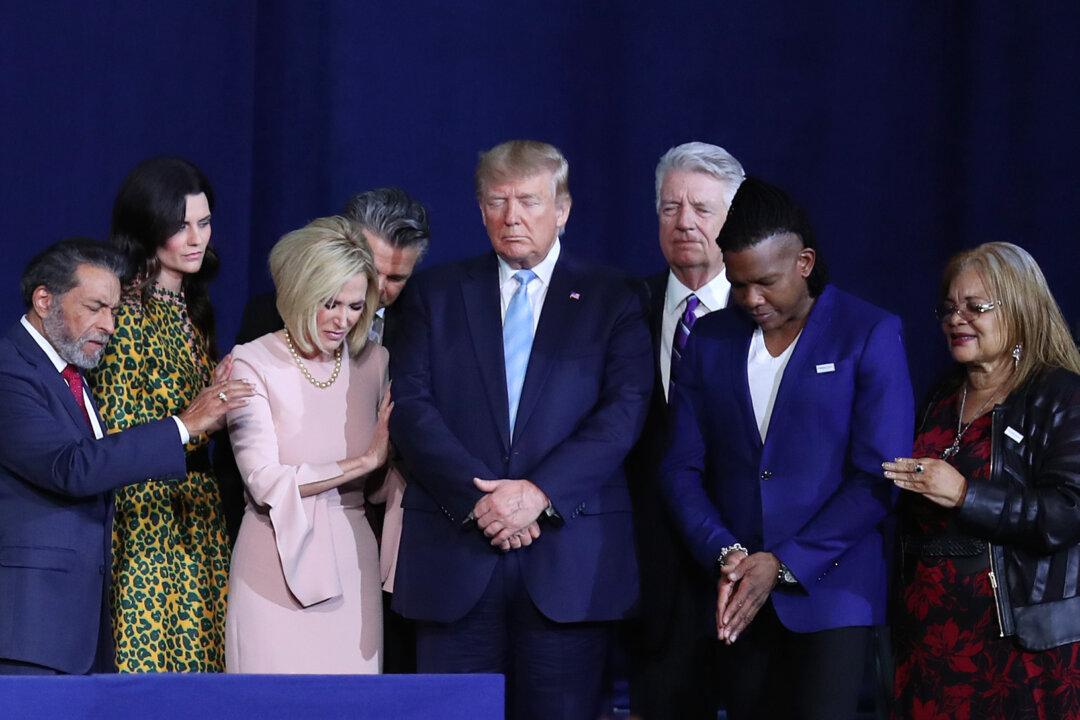President Donald Trump highlighted his accomplishments in aid of the faith community in a speech to evangelicals on Jan. 3 and promised more, including an action to ensure teachers and students are free, or perhaps freer, to pray in schools.
“A society without religion cannot prosper. A nation without faith cannot endure. Because justice, goodness, and peace cannot prevail without the glory of Almighty God,” he said to a crowd of about 7,000 at the King Jesus International Ministry on the outskirts of Miami.





